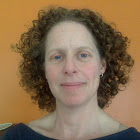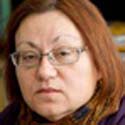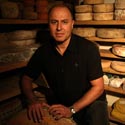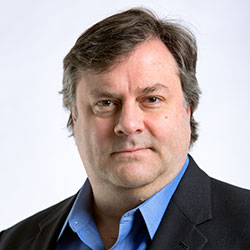Instructors and Staff
Our multidisciplinary program welcomes a wide variety of scholars and working professionals as instructors each semester. Most teach in person, while others enrich the offerings of the Gastronomy program through blended online courses. The list below represents recent and coming semesters.
Megan Elias, Faculty Coordinator
 Dr. Megan J. Elias is Associate Professor of the Practice and Faculty Coordinator of the Gastronomy Program. Prior to coming to BU she was an associate professor and administrator at the City University of New York and most recently Director of Online Courses for the Gilder Lehrman Institute of American History. She earned her PhD in history at the City University of New York Graduate Center and has since published five books in food history. Her most recent book, Food on the Page: Cookbooks and American Culture (Penn Press, 2017) was featured in the New York Times. Elias has been the recipient of several grants for her work, including a grant from the National Endowment for the Humanities for her Foodways and Humanities project, which brought together culinary arts and history students to recreate and adapt historic foodways to the contemporary context.
Dr. Megan J. Elias is Associate Professor of the Practice and Faculty Coordinator of the Gastronomy Program. Prior to coming to BU she was an associate professor and administrator at the City University of New York and most recently Director of Online Courses for the Gilder Lehrman Institute of American History. She earned her PhD in history at the City University of New York Graduate Center and has since published five books in food history. Her most recent book, Food on the Page: Cookbooks and American Culture (Penn Press, 2017) was featured in the New York Times. Elias has been the recipient of several grants for her work, including a grant from the National Endowment for the Humanities for her Foodways and Humanities project, which brought together culinary arts and history students to recreate and adapt historic foodways to the contemporary context.
Professor Elias teaches Introduction to Gastronomy: Theory and Methodology (ML 701), Food and Gender (ML 706) History of Food (ML622) and Readings in Food History (ML633)
MARY BEAUDRY, PhD
 Mary Beaudry is Professor of Archaeology, Anthropology, and Gastronomy at Boston University. Her food-related research interests involve the archaeology of historical households and homelots. Beaudry’s current field projects include investigations at several historical home sites in Massachusetts and at the Colonial William Carr Estate at Little Bay, Montserrat, West Indies.
Mary Beaudry is Professor of Archaeology, Anthropology, and Gastronomy at Boston University. Her food-related research interests involve the archaeology of historical households and homelots. Beaudry’s current field projects include investigations at several historical home sites in Massachusetts and at the Colonial William Carr Estate at Little Bay, Montserrat, West Indies.
Beaudry teaches Pots and Pans: Material Culture of Cookery and Dining (ML 612).
SANDY BLOCK, MW
 Sandy Block is a certified Master of Wine (one of only 312 in the world, and one of two MWs teaching in our Wine Studies program). He is Vice President of Beverage Operations for Legal Seafoods. He is the Wine Editor for The Improper Bostonian, and he is on the Editorial Advisory Board of Cheers Magazine, the Executive Symposium Committee of Sante Magazine, and the Executive Board of Boston University’s Elizabeth Bishop Wine Resource Center.
Sandy Block is a certified Master of Wine (one of only 312 in the world, and one of two MWs teaching in our Wine Studies program). He is Vice President of Beverage Operations for Legal Seafoods. He is the Wine Editor for The Improper Bostonian, and he is on the Editorial Advisory Board of Cheers Magazine, the Executive Symposium Committee of Sante Magazine, and the Executive Board of Boston University’s Elizabeth Bishop Wine Resource Center.
Block teaches History of Wine (ML 632) in the Gastronomy program. In the Wine Studies program, he teaches Levels 1 and 2 (ML 651 and 652) and is involved with Levels 3 and 4 (ML 653 and 654).
NETTA DAVIS
 Netta Davis works for Harvard University’s Gutman Library and is a Gastronomy lecturer at Boston University. She holds a Master of Arts in American Studies from BU.
Netta Davis works for Harvard University’s Gutman Library and is a Gastronomy lecturer at Boston University. She holds a Master of Arts in American Studies from BU.
Davis teaches Experiencing Food Through the Senses (ML 715), and, Culture and Cuisine of New England (ML 638) and Wild and Foraged Foods (ML 625).
IHSAN GURDAL
 Ihsan Gurdal is the owner of Formaggio Kitchen, one of the top gourmet food retailers in the country. The Cambridge institution stocks artisan cheeses from around the world, imported and house-cured meats, and specialty grocery items. Since taking ownership of the store in 1992, Gurdal has worked extensively with cheese makers and affineurs throughout the U.S. and Europe. His efforts support agricultural artisans and have brought many rare and unique cheeses into his shop.
Ihsan Gurdal is the owner of Formaggio Kitchen, one of the top gourmet food retailers in the country. The Cambridge institution stocks artisan cheeses from around the world, imported and house-cured meats, and specialty grocery items. Since taking ownership of the store in 1992, Gurdal has worked extensively with cheese makers and affineurs throughout the U.S. and Europe. His efforts support agricultural artisans and have brought many rare and unique cheeses into his shop.
Gurdal teaches Artisan Cheeses of the World (ML 705).
CORBY KUMMER
 Corby Kummer is one of the most influential and widely read food writers in the country. He is a writer and editor at The Atlantic and has authored several books, including The Pleasures of Slow Food (2002) and The Joys of Coffee (1995). His work has appeared in Boston Magazine and New York Magazine, and he has been the recipient of five James Beard Journalism Awards, including the MFK Fisher Distinguished Writing Award, and a finalist for the National Magazine Award.
Corby Kummer is one of the most influential and widely read food writers in the country. He is a writer and editor at The Atlantic and has authored several books, including The Pleasures of Slow Food (2002) and The Joys of Coffee (1995). His work has appeared in Boston Magazine and New York Magazine, and he has been the recipient of five James Beard Journalism Awards, including the MFK Fisher Distinguished Writing Award, and a finalist for the National Magazine Award.
Kummer teaches Food Writing for the Media (ML 681).
JAMES McCann, PhD
James McCann is Professor of History and Associate Director of the African Studies Center at Boston University. His research and teaching interests include agricultural and ecological history of Africa, Ethiopia, and the Horn of Africa; field research methods in African studies; the agro-ecology of tropical disease; and the history of food and cuisine in Africa and the Atlantic world. He is the author of five books, including Stirring the Pot: A History of African Cuisine (2010), and has published many articles and reviews.
McCann was named to a 2012–13 John S. Guggenheim Foundation Fellowship and was a Fulbright Fellow in Ethiopia from 2012–13. He has served as consulting field scientist on agriculture and development for OXFAM (UK), OXFAM America, Norwegian Save the Children, UNEP, and American Jewish World Service. He has also given testimony at the House of Commons, Parliament, and the U.S. Congress, and served as principle investigator of a five-year Rockefeller Foundation research project in collaboration with the Harvard School of Public Health investigating the agro-ecology of the cultivation of maize and malaria transmission in Africa.
McCann teaches History of Food (ML 632) and Nature’s (Re)past: Histories of Food, Environment and Society (ML 589).
SAM MENDLINGER, PhD
Sam Mendlinger’s research has resulted in agricultural- and tourism-related economic development in over twenty countries in North America, Asia, Africa, and South America. He holds several patents, has more than sixty international peer-reviewed publications, has presented in numerous conferences, and received more than twenty international peer-reviewed grants. His current research and teaching interests include responsible and sustainable economic growth in developing countries, the effects of tourism development on the local population, and how small-to-medium-sized businesses adapt to tourism development and growth. Mendlinger directs the Economic Development and Tourism Management concentration for the Master of Science in Administrative Studies.
Mendlinger teaches Evaluating and Developing Markets for Cultural Tourism (ML 692), Economic Development via Tourism in the Developing World (AD 650), and Eco-Tourism (AD 758).
CHRISTINE MERLO
 Christine Merlo is an Associate Professor at Massasoit Community College and adjunct instructor at Boston University. She has taught at Le Cordon Bleu College of Culinary Arts in Cambridge, Massachusetts, where she received the 2010 L’Espirit d’Excellence Award—given to educators who have gone above and beyond the call of duty in their contributions to their students, peers, and campus. She was also awarded the 2010 Outstanding Faculty Award—voted by the graduating class at Le Cordon Bleu Boston. She is involved in the children’s program “Cooking Up Culture,” and has been a freelance writer for the Boston Globe’s food section, recipe coordinator for “The Phantom Gourmet” television program, wine associate for Sebastiani Vineyards, and a chef on the PBS television program “Simply Ming” with Ming Tsai, chef and owner of Blue Ginger Restaurant in Wellesley, Massachusetts. She was also previously an Assistant Professor of Culinary Arts at Newbury College, and a kitchen manager and teaching assistant at Boston University.
Christine Merlo is an Associate Professor at Massasoit Community College and adjunct instructor at Boston University. She has taught at Le Cordon Bleu College of Culinary Arts in Cambridge, Massachusetts, where she received the 2010 L’Espirit d’Excellence Award—given to educators who have gone above and beyond the call of duty in their contributions to their students, peers, and campus. She was also awarded the 2010 Outstanding Faculty Award—voted by the graduating class at Le Cordon Bleu Boston. She is involved in the children’s program “Cooking Up Culture,” and has been a freelance writer for the Boston Globe’s food section, recipe coordinator for “The Phantom Gourmet” television program, wine associate for Sebastiani Vineyards, and a chef on the PBS television program “Simply Ming” with Ming Tsai, chef and owner of Blue Ginger Restaurant in Wellesley, Massachusetts. She was also previously an Assistant Professor of Culinary Arts at Newbury College, and a kitchen manager and teaching assistant at Boston University.
Merlo is a graduate of BU’s Culinary Arts Certificate program, and a Certified Sommelier with the Court of Master Sommeliers. She is also a candidate for a Sommelier Diploma with the International Sommelier Guild, and has earned an intermediate wine certificate from the Wine and Spirit Education Trust. A former class dean at Babson College, she received her Bachelor of Science in Business at Providence College and a Master’s degree in Human Resource Management from Framingham State University.
Merlo teaches Laboratory in Culinary Arts: Cooking (ML 698).
ELLEN MESSER, PhD
 Ellen Messer is an anthropologist with faculty affiliations at Tufts University’s Friedman School of Nutrition Science and Policy and Brandeis University’s Heller School of Social Research and Policy. Her research interests include cross-cultural perspectives on human right to food; biocultural determinants of food and nutrition intake; sustainable food systems (with special emphasis on the roles of NGOs); impacts of agrobiotechnology on hunger; and cultural history of nutrition, agriculture, food science. She is the author/co-author of several books on food policy, including Who’s Hungry? And How Do We Know?: Food Shortage, Poverty and Deprivation (United Nations Free Press, 1998).
Ellen Messer is an anthropologist with faculty affiliations at Tufts University’s Friedman School of Nutrition Science and Policy and Brandeis University’s Heller School of Social Research and Policy. Her research interests include cross-cultural perspectives on human right to food; biocultural determinants of food and nutrition intake; sustainable food systems (with special emphasis on the roles of NGOs); impacts of agrobiotechnology on hunger; and cultural history of nutrition, agriculture, food science. She is the author/co-author of several books on food policy, including Who’s Hungry? And How Do We Know?: Food Shortage, Poverty and Deprivation (United Nations Free Press, 1998).
Messer teaches Food Policy and Food Systems (ML 720), US Food Policy and Culture (ML 721), and Food Values: Local to Global Food Policy, Practice, and Performance (ML 719).
KAREN METHENY, PhD
Karen Metheny is a Senior Lecturer for the Gastronomy program and Visiting Researcher in the Department of Archaeology at Boston University. She is co-editor with Mary Beaudry of the two-volume Archaeology of Food: An Encyclopedia (Rowman & Littlefield 2015), the first reference work devoted to the study of food and foodways through archaeology. With Mary Beaudry, she will serve as co-editor for a new book series on the archaeology of food for the University of Alabama Press. Metheny recently served as guest editor and contributor to a volume on the archaeological study of food in Northeast Historical Archaeology (2014). Her interest in American historical foodways incorporates the study and recreation of period recipes and cooking methods; food and sensory engagement in interpretive history programs; and the use of food mapping and other visualization techniques to explore the relationships between people and food in past and contemporary societies. Metheny received Metropolitan College’s Chadwick Fellowship in 2015-16 for her on-going study of the cultural significance of maize in colonial New England.
Metheny teaches Introduction to Gastronomy: Theory and Methodology (ML 701), Anthropology of Food (ML 641), Archaeology of Food in Ancient Times (ML 611), Culture and Cuisine: New England (ML 638), Food and Society (ML 712), and two special topic courses (ML 610): Cookbooks and History, and Food and Public History.
BILL NESTO, MW
 Bill Nesto holds the prestigious Master of Wine certification awarded by the London-based Institute of Masters of Wine. Bill and his wife, Frances Di Savino, authored The World of Sicilian Wine (University of California Press, 2013), which won the 2013 Andrè Simon Book Award, and more recently Chianti Classico: The Search for Tuscany’s Noblest Wine (University of California Press, 2016). He is a frequent guest lecturer and judge at international wine competitions. Bill’s prior experience in the wine world includes serving as an award-winning sommelier at the Ritz-Carlton in Boston, wine director of a food and wine festival, managing director of an Italian wine-tour company, and wine journalist for several publications, including Massachusetts Beverage Business and Gastronomica. Nesto is a Senior Lecturer in Gastronomy.
Bill Nesto holds the prestigious Master of Wine certification awarded by the London-based Institute of Masters of Wine. Bill and his wife, Frances Di Savino, authored The World of Sicilian Wine (University of California Press, 2013), which won the 2013 Andrè Simon Book Award, and more recently Chianti Classico: The Search for Tuscany’s Noblest Wine (University of California Press, 2016). He is a frequent guest lecturer and judge at international wine competitions. Bill’s prior experience in the wine world includes serving as an award-winning sommelier at the Ritz-Carlton in Boston, wine director of a food and wine festival, managing director of an Italian wine-tour company, and wine journalist for several publications, including Massachusetts Beverage Business and Gastronomica. Nesto is a Senior Lecturer in Gastronomy.
Nesto teaches Wine Studies Level 1 (ML 651), Level 2 (ML 652), Level 3 (ML 653), and Level 4 (ML 654).
POTTER PALMER, PhD
 Potter Palmer brings a unique mix of culinary, educational, media, and technological insight to his role as director of MET’s Programs in Food and Wine. Palmer began his culinary career by attending La Varenne Cooking School in Paris and working as the kitchen manager at Ma Cuisine Cooking School in Los Angeles, where he collaborated with luminary chefs Ken Frank and Wolfgang Puck.He went on to earn a master’s degree and doctorate in film and media studies at UCLA, before serving in leadership positions in academic and instructional technology at L.A.’s Occidental College. Switching coasts, Palmer resumed his culinary career by completing the Certificate in Culinary Arts and Master of Liberal Arts (MLA) in Gastronomy at BU’s Metropolitan College, before joining the MLA faculty as a Lecturer in Gastronomy.
Potter Palmer brings a unique mix of culinary, educational, media, and technological insight to his role as director of MET’s Programs in Food and Wine. Palmer began his culinary career by attending La Varenne Cooking School in Paris and working as the kitchen manager at Ma Cuisine Cooking School in Los Angeles, where he collaborated with luminary chefs Ken Frank and Wolfgang Puck.He went on to earn a master’s degree and doctorate in film and media studies at UCLA, before serving in leadership positions in academic and instructional technology at L.A.’s Occidental College. Switching coasts, Palmer resumed his culinary career by completing the Certificate in Culinary Arts and Master of Liberal Arts (MLA) in Gastronomy at BU’s Metropolitan College, before joining the MLA faculty as a Lecturer in Gastronomy.
Palmer teaches Food and Visual Culture (ML 671) and Food in Film (ML 673).
KAREN PEPPER, PhD
Karen Pepper studied history at the University of California, Berkeley (AB), history of science at San Francisco State University (MA), microbiology at the University of Paris (PhD), and creative writing at Bennington College (MFA). She briefly worked as a substantive editor at Gastronomica. She currently teaches scientific writing at M.I.T. and Children’s Hospital and has taught for the writing program at Boston University (Source and Sorcery: All about Food). She presented “Hot Sausage and Mustard: Putting Food Studies on the Undergraduate Menu” at a meeting of the American Association of University Professors, and she loves her courses in the Gastronomy Program.
Pepper teaches Reading and Writing the Food Memoir (ML 615), Debating Diet: The Fat Controversy (ML 613), and Food and the Senses (ML 715).
BARBARA ROTGER, MLA
 Barbara Rotger is Academic Program Manager for the MLA in Gastronomy and Food Studies Certificate program. She is a graduate of the Gastronomy program and holds a Bachelor’s degree in Russian Studies. Rotger is an avid collector of recipes boxes, scrapbooks and manuscript collections. Her master’s thesis, entitled “How to Read a Recipe Box: A Scholar’s Guide to Working with Personal Recipe Collections,” proposes a methodology for analyzing these collections as historical, cultural and gendered artifacts.
Barbara Rotger is Academic Program Manager for the MLA in Gastronomy and Food Studies Certificate program. She is a graduate of the Gastronomy program and holds a Bachelor’s degree in Russian Studies. Rotger is an avid collector of recipes boxes, scrapbooks and manuscript collections. Her master’s thesis, entitled “How to Read a Recipe Box: A Scholar’s Guide to Working with Personal Recipe Collections,” proposes a methodology for analyzing these collections as historical, cultural and gendered artifacts.
VALERIE RYAN, MLA
 Valerie Ryan is a food scientist and food studies scholar. As a graduate of the program, she holds a Master of Liberal Arts in Gastronomy and is certified in Culinary Arts; her Bachelor of Science is in Food and Nutrition, with a concentration in Food Chemistry. As a food scientist, she has worked for both government and industry in the areas of research and development; ingredient applications; chemical, nutritional, and sensory analysis; and product innovation. Ryan has focused her food studies research on the impact of taste preference on human evolution.
Valerie Ryan is a food scientist and food studies scholar. As a graduate of the program, she holds a Master of Liberal Arts in Gastronomy and is certified in Culinary Arts; her Bachelor of Science is in Food and Nutrition, with a concentration in Food Chemistry. As a food scientist, she has worked for both government and industry in the areas of research and development; ingredient applications; chemical, nutritional, and sensory analysis; and product innovation. Ryan has focused her food studies research on the impact of taste preference on human evolution.
Ryan teaches a special topics course titled: The Science of Food and Cooking.
BILL WARD
 Bill Ward is an accomplished business leader and entrepreneur. His experience ranges from corporate engineering, marketing, and sales to his own consulting and real estate ventures. He has been active in the family business, Ward’s Berry Farm of Sharon, as a hands-on consultant for over 30 years, contributing to improved operations and increased profitability. He has been a mentor at SCORE (a group of executives providing pro-bono business consulting) for over 10 years. Since 2009, he has run an Entrepreneurship Training Program at JVS, a workforce training and development non-profit. Recently, in collaboration with Commonwealth Kitchen, he shifted the emphasis of the JVS program to food-related businesses. The program has successfully launched several local food businesses.
Bill Ward is an accomplished business leader and entrepreneur. His experience ranges from corporate engineering, marketing, and sales to his own consulting and real estate ventures. He has been active in the family business, Ward’s Berry Farm of Sharon, as a hands-on consultant for over 30 years, contributing to improved operations and increased profitability. He has been a mentor at SCORE (a group of executives providing pro-bono business consulting) for over 10 years. Since 2009, he has run an Entrepreneurship Training Program at JVS, a workforce training and development non-profit. Recently, in collaboration with Commonwealth Kitchen, he shifted the emphasis of the JVS program to food-related businesses. The program has successfully launched several local food businesses.
Ward teaches Planning a Food Business (ML 655), Launching a Food Business (ML 704), and Food Marketing (ML 565).
MERRY WHITE, PhD
 Merry White is Professor of Anthropology in the College of Arts and Sciences, with specialties in Japanese studies, in food, and in travel. A caterer before she entered graduate school, she also wrote two cookbooks, one of which, first published in the mid 1970s, has recently been republished by Princeton University Press. Her most recent publication is Coffee Life in Japan which keeps her on the road and in cafes on book tours. The many meanings of “work” in food, from domestic to artisanal to industrial, is her next Japan-based research project.
Merry White is Professor of Anthropology in the College of Arts and Sciences, with specialties in Japanese studies, in food, and in travel. A caterer before she entered graduate school, she also wrote two cookbooks, one of which, first published in the mid 1970s, has recently been republished by Princeton University Press. Her most recent publication is Coffee Life in Japan which keeps her on the road and in cafes on book tours. The many meanings of “work” in food, from domestic to artisanal to industrial, is her next Japan-based research project.
Prof. White teaches Food, Culture, and Society (ML 688).


